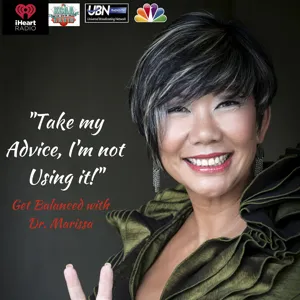Podcast Summary
Savoring small pleasures for greater resilience: Recognizing and enjoying everyday pleasures boosts resilience and well-being, from waking up in a comfortable bed to noticing textures underfoot.
Recognizing and taking pleasure in the small moments of everyday life is an essential component of building greater resilience and well-being. Dr. Rick Hansen emphasizes that animals, including humans, experience immediate stress relief when they have moments of pleasure. Yet, many people overlook these opportunities despite having ample chances to experience pleasure every day. It's not about seeking grand moments of pleasure but rather acknowledging and savoring the small, everyday occurrences. For instance, waking up and feeling the comfort of your bed, or noticing the texture of the floor beneath your feet, are simple pleasures that can be easily overlooked in the hustle and bustle of daily life. By consciously focusing on these moments and allowing yourself to fully appreciate them, you can refuel and recharge, leading to increased overall well-being.
Experiencing pleasure daily boosts well-being: Pleasurable moments act as stress buffers, calm the body, and create positive memories for future use.
Focusing on and experiencing pleasure in everyday life has numerous benefits for both our physical and mental well-being. These pleasurable moments act as buffers against negative emotions and stressors, allowing us to disengage and reduce stress on our immune, cardiovascular, gastrointestinal, and endocrine systems. Additionally, experiencing pleasure calms the body and helps establish a greater sense of calm well-being through repeated experiences. Lastly, memories of pleasure can be pulled up later to provide relief, reassurance, and renewed energy during challenging times. By internalizing the somatic and emotional memory of pleasure, we can move through life feeling already pleasured, which in turn helps us face situations with less anxiety and greater resilience. Essentially, embracing and focusing on the small pleasures in life can lead to significant improvements in overall well-being and mental fortitude.
Struggling with Embracing Pleasure: People may face challenges embracing pleasure due to depression, distractions, societal norms, or personal inhibitions.
While pleasure is a fundamental human experience, many people struggle with fully embracing it due to various reasons. Anhedonia, or the inability to feel pleasure, can be a symptom of depression. Some people may simply be so focused on the next goal or distraction that they overlook the pleasure in the present moment, making it a habit to bypass it. Additionally, societal norms and personal inhibitions can prevent individuals from experiencing or expressing pleasure, particularly when it comes to sensual or erotic experiences. It's essential to reflect on whether we truly allow ourselves to experience and enjoy life's pleasures, despite living in a society that seems to prioritize materialism and excess.
Distinguishing Between Consumption and Appreciation Societies: Practice savoring to enhance enjoyment of simple moments, improve ability to find joy in everyday life, and reduce consumption for a lighter environmental footprint.
While we may pursue external pleasures such as big cars, promotions, or material possessions, we don't always maximize our internal experience of pleasure from these things. Instead, we can find joy in simple moments, like making coffee in the morning. The distinction between a consumption society and an appreciation society is important to note, as increasing our appreciation for these small moments may lead to reduced consumption and a lighter footprint on the planet. One way to improve our ability to find and internalize everyday pleasures is through the practice of savoring, as researched by Fred Bryant and his colleagues. By focusing on the present moment and fully engaging our senses, we can enhance our enjoyment of these experiences. Additionally, recognizing and addressing the blocks to internalizing pleasure, such as societal pressures or personal beliefs, can help us better appreciate the simple joys in life.
Prioritize experiencing pleasure in daily life: Scan for opportunities for pleasure, let yourself feel it, and fully engage with it when encountered
We should prioritize experiencing pleasure in our daily lives and fully embrace it when we encounter it. This can come from various sources, including sensory experiences and internal sources like our intellect or sense of humor. It's important not only to seek out pleasurable experiences but also to allow ourselves to feel and fully engage with the pleasure when we encounter it. The pleasure of interacting with others is a particularly deep and fulfilling source of pleasure, offering interpersonal and social connections that can bring us great joy. Brian's research emphasizes the importance of savoring these experiences and encourages us to be open to finding pleasure in unexpected places. So make it a priority to scan for opportunities for pleasure, let yourself feel it, and fully allow yourself to experience it when you find it.
Finding Joy in Everyday Moments: Despite challenges, opportunities for authentic pleasure and joy exist in everyday life. Recognizing and appreciating these moments can enhance overall well-being and happiness.
Even in the midst of a challenging and imperfect life, there are opportunities for authentic pleasure and joy. This was illustrated in a story shared about an encounter with profoundly disabled individuals in a residential facility. Despite their severe disabilities, they were able to find pleasure in the simple presence of human connection. This experience serves as a reminder that pleasure and joy can be found in everyday moments, not just during perfect or ideal situations. It's essential to recognize and appreciate these moments, no matter how small they may seem. As mentioned earlier, research supports this idea, with Fred Bryant's work on savoring emphasizing the importance of not overlooking these experiences of pleasure. Overall, embracing the little moments of joy and pleasure in life can significantly enhance our overall well-being and happiness.
The Importance of Finding Pleasure in Life: Finding pleasure is crucial for coping with life's challenges and offers numerous psychological benefits. Seeking out joy is especially important for those with fewer opportunities to experience it.
Finding and taking pleasure in life is essential, especially for those facing difficult circumstances. Despite societal constructs that view pleasure as hedonistic or problematic, it actually offers numerous psychological benefits that help us cope with life's challenges. Consequently, seeking out pleasurable experiences becomes increasingly important for individuals with fewer opportunities to experience joy. If you enjoyed today's episode on pleasure, please consider leaving a review, comment, or subscribing to our podcast. Your support helps others discover our show, and we look forward to discussing the concept of feeling successful with you next week.





